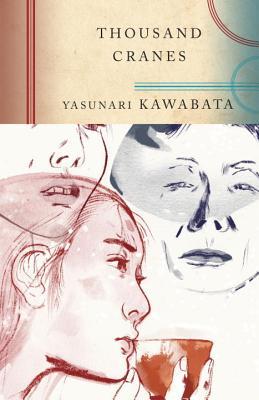Paperback, 147 pages
English language
Published Dec. 16, 1996 by Vintage International.

Paperback, 147 pages
English language
Published Dec. 16, 1996 by Vintage International.
Nobel Prize winner Yasunari Kawabata’s Thousand Cranes is a luminous story of desire, regret, and the almost sensual nostalgia that binds the living to the dead.
While attending a traditional tea ceremony in the aftermath of his parents’ deaths, Kikuji encounters his father’s former mistress, Mrs. Ota. At first Kikuji is appalled by her indelicate nature, but it is not long before he succumbs to passion—a passion with tragic and unforeseen consequences, not just for the two lovers, but also for Mrs. Ota’s daughter, to whom Kikuji’s attachments soon extend. Death, jealousy, and attraction convene around the delicate art of the tea ceremony, where every gesture is imbued with profound meaning.